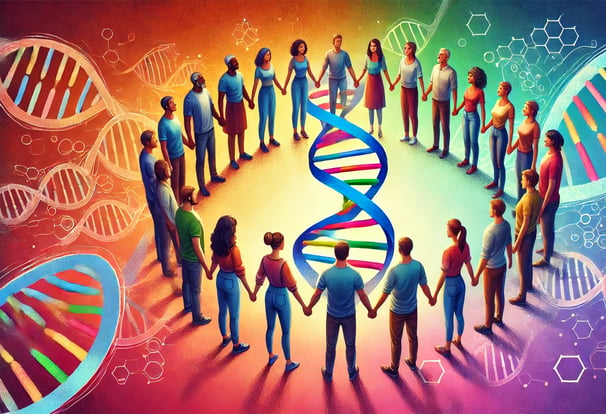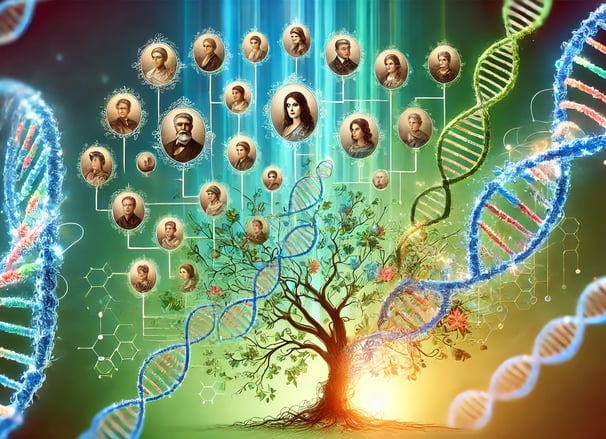Becoming a Genetic Counselor: A Comprehensive Guide
Learn how to become a genetic counselor with this comprehensive guide covering education, experience, and application processes.
CAREER ADVICESCHOOL ADVICE


Becoming a Genetic Counselor:
A Comprehensive Guide
Genetic counseling is a fulfilling and impactful career, offering a blend of scientific expertise and compassionate patient care. For those intrigued by the intersection of genetics and patient support, this guide provides a detailed roadmap to becoming a genetic counselor.
Pursuing a career as a genetic counselor means embarking on a journey filled with education, hands-on experience, and a passion for helping individuals understand their genetic makeup. This guide will walk you through each step, from undergraduate studies to certification, ensuring you are well-prepared for this rewarding profession.


Understanding the Role of a Genetic Counselor
Genetic counselors are healthcare professionals who guide patients through genetic testing and help them understand their genetic risks. They play a crucial role in medical settings, providing support and information that influences significant health decisions.
Obtaining a Bachelor's Degree
The first step towards becoming a genetic counselor is earning a bachelor's degree. Ideally, this degree should be in a relevant field such as biology, genetics, or psychology. Maintaining a minimum GPA of 3.0 is often required, although there are pathways to overcome a lower GPA through strong performance in prerequisite courses and relevant experience.


Importance of Prerequisite Courses
Graduate programs in genetic counseling typically require specific undergraduate courses. These often include biology, chemistry, biochemistry, genetics, psychology, and statistics. Excelling in these courses is critical for demonstrating your academic readiness.
Gaining Relevant Experience
Before applying to graduate programs, gaining experience in genetics or counseling can be incredibly beneficial. This can include roles in research labs, clinical settings, or volunteer positions related to healthcare. Such experiences not only strengthen your application but also provide valuable insights into the profession.
Graduate Programs in Genetic Counseling
Applying to accredited graduate programs is the next step. These programs are competitive, and each has its own set of requirements. It’s important to research these requirements thoroughly and prepare your application materials, including your CV, personal statement, and letters of recommendation, well in advance.
Preparing for the GRE
Some graduate programs may require the GRE. Preparing for and taking this exam can be a crucial part of your application process. However, not all programs require the GRE, so it's important to verify the requirements of each program to which you are applying.


The Application Process
The application process involves submitting your materials by the program deadlines, typically in December or January. After submission, you may be invited to interviews, which are held from February to April. Successfully navigating this process requires careful preparation and an understanding of each program's expectations.
The Interview Process
Interviews are a critical component of the application process. These allow programs to assess your suitability for the profession and for you to demonstrate your passion and readiness for the role. Preparing for these interviews by understanding common questions and practicing your responses can be beneficial.
Match Day and Acceptance
Match Day, usually in late April, is when you find out if you have been accepted into a program. This can be a highly competitive process, and not all applicants are successful on their first try. If you do not match, seeking feedback and considering reapplication or alternative paths can be the next steps.
Graduate Education and Certification
Once accepted, you will begin an 18-22 month master's program in genetic counseling. This program includes extensive coursework and hands-on clinical experience. After graduation, passing the certification exam is necessary to become a Certified Genetic Counselor (CGC).
Continuous Learning and Professional Development
Even after becoming a CGC, continuous learning and professional development are essential. Staying updated with the latest advancements in genetics and counseling techniques ensures you provide the best care for your patients.






Embarking on the path to becoming a genetic counselor is a significant commitment, but it is a career that offers immense rewards. By following the steps outlined in this guide, you can equip yourself with the knowledge and experience needed to succeed in this fulfilling profession.


